Best small business router of 2024
Top routers for work
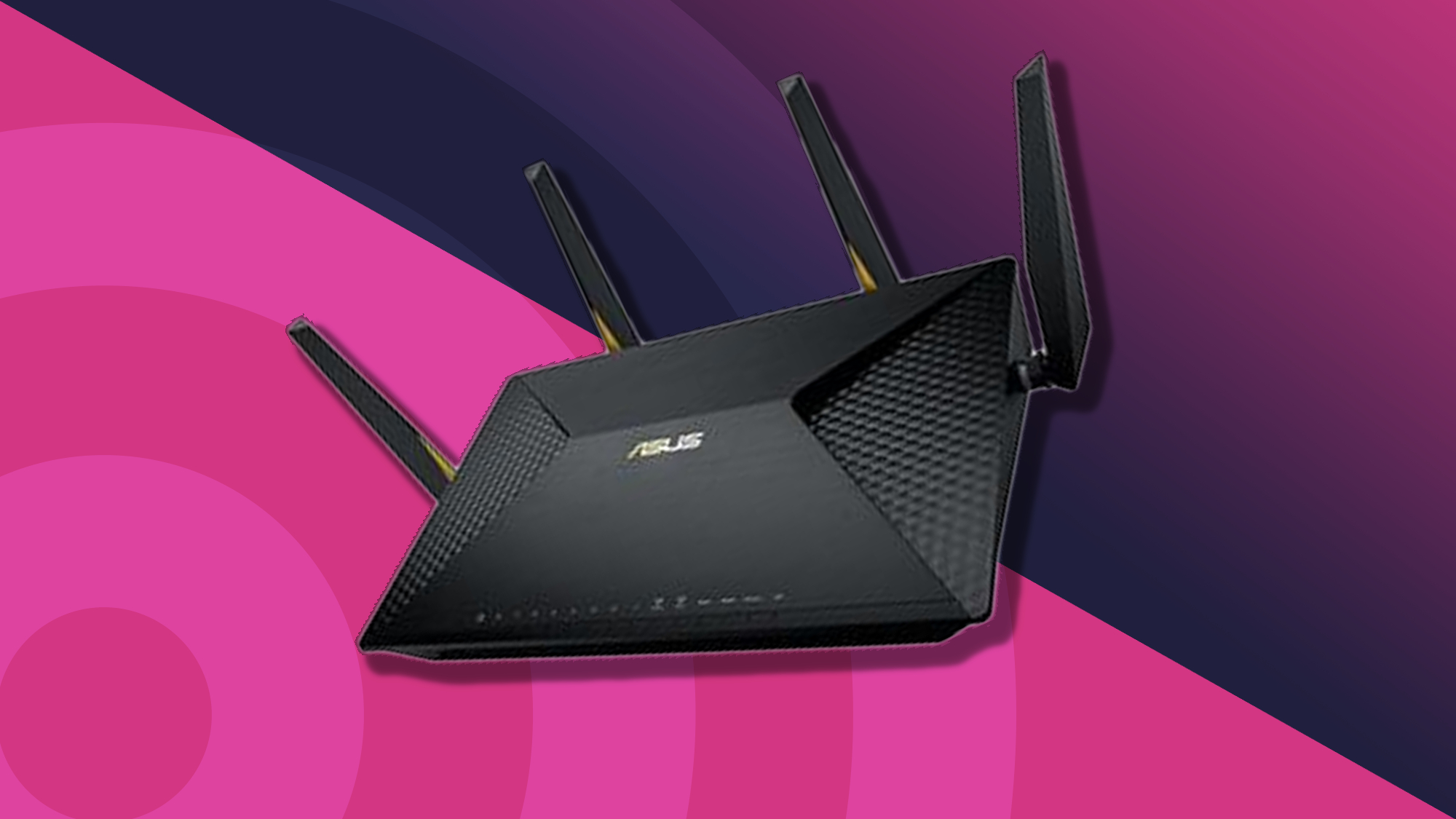
We list the best small business routers, to make it simple and easy for small and medium businesses to improve wireless connectivity.
Choosing the best Wi-Fi router for your small business means finding a device that can effortlessly manage the network traffic of multiple employees and devices around the clock. Fortunately, modern routers are more than capable of handling such demands. These devices, often featuring dual or triple-band connectivity, boast a range of features typically found in high-end, enterprise-grade models but at a more affordable price. Some models even offer the ability to create your cloud storage, a solution that can satisfy the needs of most SMBs.
The best small business routers today come with an array of features that reflect the complexity of running a wireless network. These features include advanced hardware comparable to that found in computers. When it comes to setup and maintenance, the best router should be straightforward, negating the need for a dedicated IT team or administrator. This is particularly beneficial for smaller businesses. The powerful features of these routers are easily accessible through user-friendly interfaces, available on both PC and mobile devices.
In our selection of the best small business routers, we've focused on aspects critical to business users, such as security, support, remote access, business VPN, WAN redundancy, connectivity options, and scalability. These factors are often more important than raw speed or quality of service features for business applications.
Whether you're in the market for the best secure router, the best Wi-Fi 6 router, or the best mesh Wi-Fi router, our carefully curated list offers a range of top picks that have been thoroughly compared and evaluated to meet the specific needs of small businesses in 2024.
The best small business routers of 2025 in full:
Why you can trust TechRadar
The best small business router overall
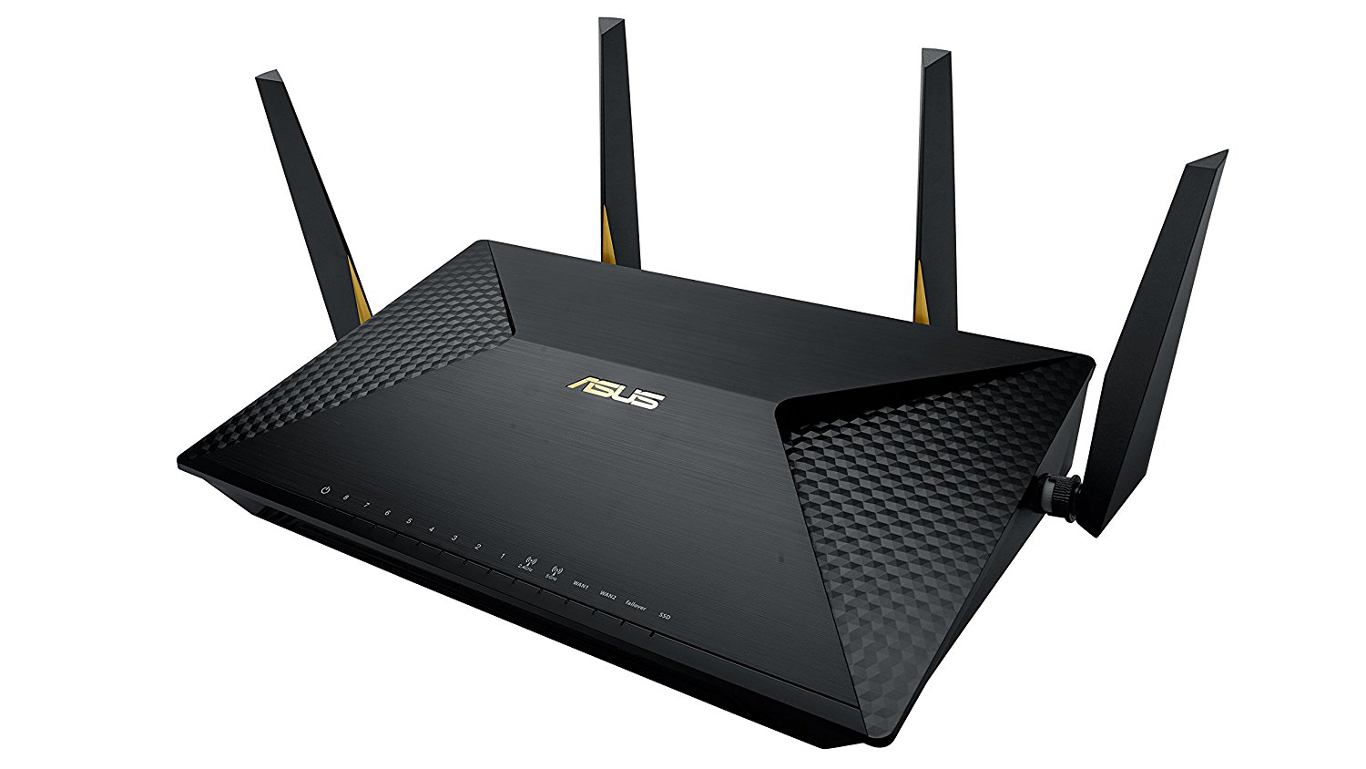
1. Asus BRT-AC828 router
Specifications
Reasons to buy
Reasons to avoid
Asus has a reputation for manufacturing great consumer products, and the Taiwanese firm – known for its laptops and motherboards – has been trying its hand at wireless products. The BRT-AC828 is its only business router, and the device ticks many boxes, even for small businesses looking for more than ten simultaneous connections.
Granted, it is excruciatingly expensive but packs the sort of features you’d never expect from a router, like an M.2 slot to plug in an SSD to convert it into a mini-NAS. There’s a lot more here, including RADIUS support, the ability to aggregate four 1Gb Ethernet ports into a virtual 4Gb one (it has a mighty eight Gigabit Ethernet ports in all), and even support for LTE as a backup connection to improve resilience – the router already has two 1Gbps WAN ports that can be aggregated or used independently.
As you’d expect from a top-of-the-range router, it offers 4x4 MU-MIMO and theoretical speeds of up to 2.6Gbps with open plan coverage up to 100m (albeit on the 2.4GHz band). Asus has partnered with Trend Micro to offer a built-in security package called AIProtection.
Best small business router for the office
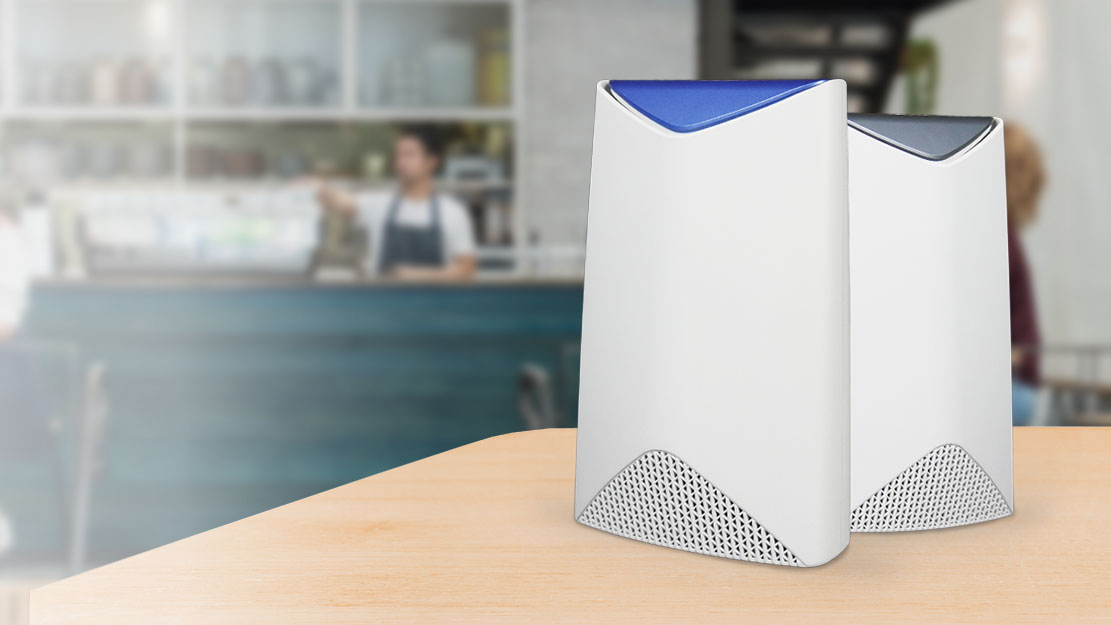
Specifications
Reasons to buy
Reasons to avoid
If you work in an office and are ready to bring your networking into the modern age with one of the best routers for businesses, you seriously need to check out the Netgear Orbi Pro. It's a modular Wi-Fi mesh system, but it makes some design and performance changes that cater to the business user.
The Netgear SRK60 pack is a solution that has a router-designated module and a single satellite-labeled part. The router and satellite combo is designed to cover a building of up to 5,000 square feet. Netgear also sells a larger pack with two satellites that cover 7,500 square feet, in case you need even more coverage.
It’s not cheap, but if you run a business where you can’t afford anyone slowing down due to slow Wi-Fi, it’s worth every penny.
Read the full review: Netgear Orbi Pro
Best small business router with Wi-Fi 6
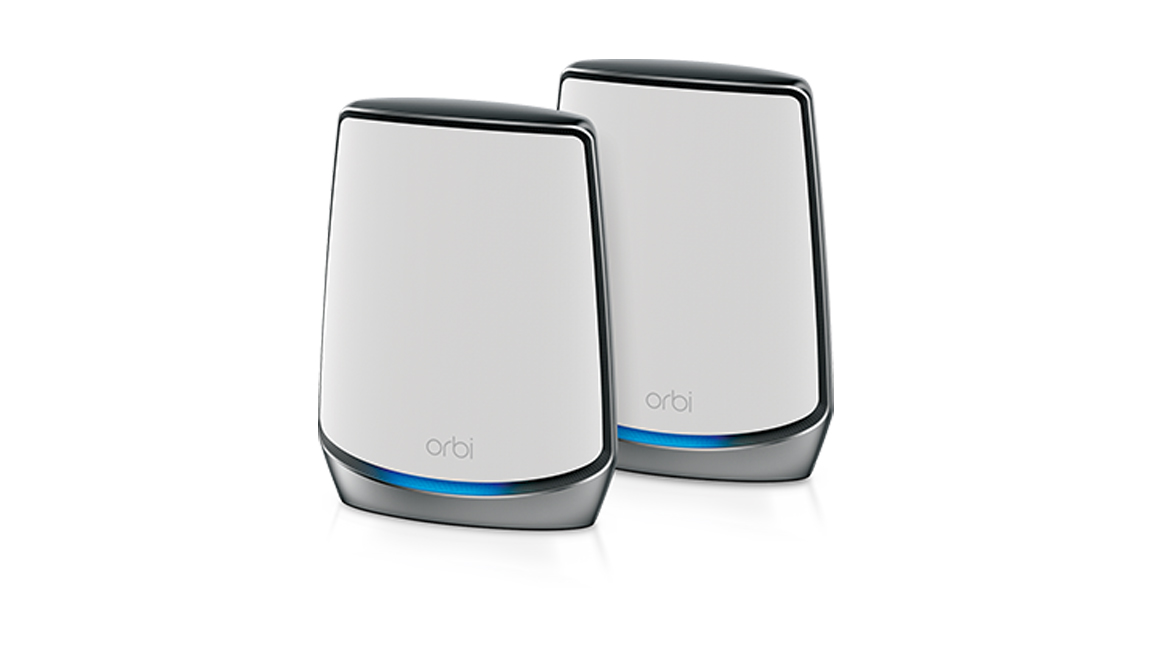
Specifications
Reasons to buy
Reasons to avoid
If your small business is ready to jump on the Wi-Fi 6 bandwagon, the Orbi WiFi 6 is your best bet. It’s not by any means a casual purchase, with its steep price tag, but if you’re looking to upgrade to a faster and more reliable router to cover a massive space – like which makes it ideal for medium size businesses or any business that has large office full of internet-connected devices – then this one’s worth the money.
Plus, it’s easy and straightforward to set up, making it great for people who don’t have too much experience with Wi-Fi networks. During setup, the app creates a single network name and uses its own judgment to assign your devices to the 2.4GHz or 5GHz bands automatically.
Read the full review: Netgear Orbi WiFi 6
Best feature-packed small business router
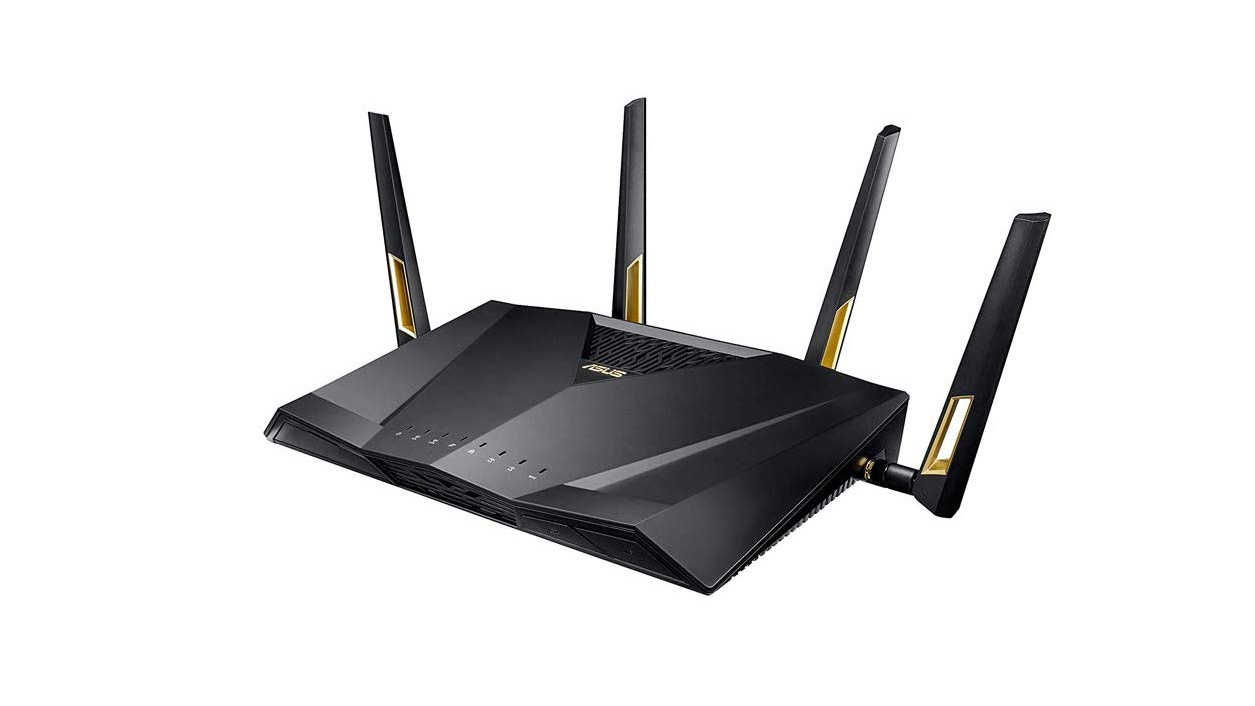
4. Asus RT-AX88U
Specifications
Reasons to buy
Reasons to avoid
The Asus RT-AX88U has all the bells and whistles you could want from a small business router, including Wi-Fi 6 compatibility.
And, because it offers so much while resting on the lower end of the current Wi-Fi 6 router price range, it is one of the best small business routers money can buy now.
One advantage of this router for small businesses is its 8 LAN ports. At twice the amount that most other routers carry, the RT-AX88U can save you from buying an Ethernet switch.
The RT-AX88U has a companion mobile app and a sophisticated web app that displays connected clients, USB devices, and security status. There are also settings to adjust guest networking, analyze traffic, and tweak options for a better gaming experience.
To save money on Asus products, check out our Asus voucher codes.
Best small business router for performance
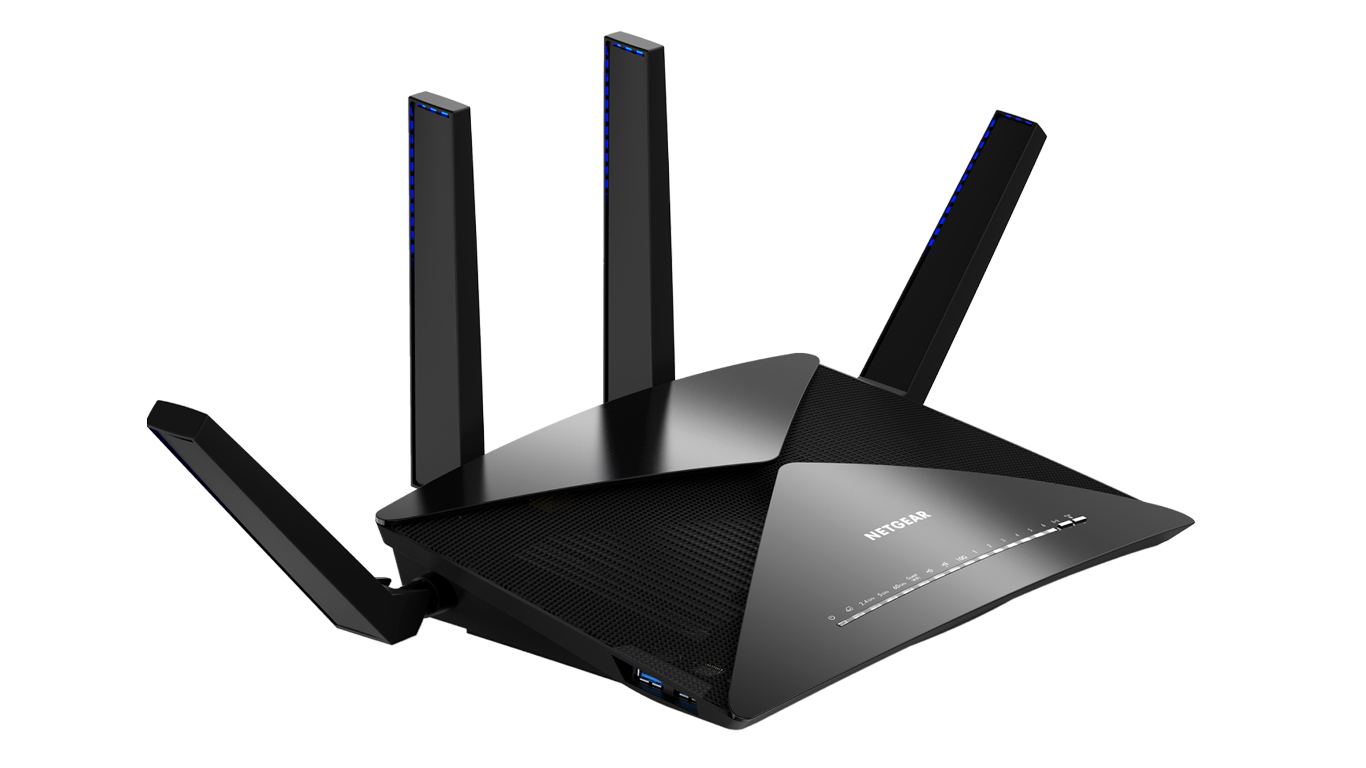
5. Netgear Nighthawk X10 router
Specifications
Reasons to buy
Reasons to avoid
Technically speaking, the Nighthawk X10 is a consumer router, but like the Asus model above, it offers features you will usually find on business routers. As technically advanced as most routers on this list, it is rated at 2600Mbps using 4x4 MU-MIMO and has plenty of LAN ports – seven Gigabit ones. You can aggregate a pair of them to reach 2Gbps, and there’s even a 10G LAN SPF+ connector for NAS access (assuming you’ve got a device that supports this technology).
Add in a pair of USB 3.0 ports and some powerful hardware (quad-core ARM processor clocked at 1.7GHz, 1GB RAM, and 512MB storage), and you can see why this Netgear router will appeal to businesses as well as enthusiast-level consumers.
Its most intriguing feature, though, has to be support for 802.11ad, which is short-range, high-speed connectivity that requires a line of sight to work correctly. Also known as WiGig, it operates in the 60GHz spectrum and aims to replace wires altogether.
One unexpected goodie included with the router is a 6-month subscription to Amazon Cloud Drive (double check which one, though, as Amazon killed the ‘unlimited’ tier mentioned in the marketing literature), and that’s an excellent bonus for backup purposes.
Get the best deals on Netgear products with our Netgear promo codes.
Best NAS-router hybrid
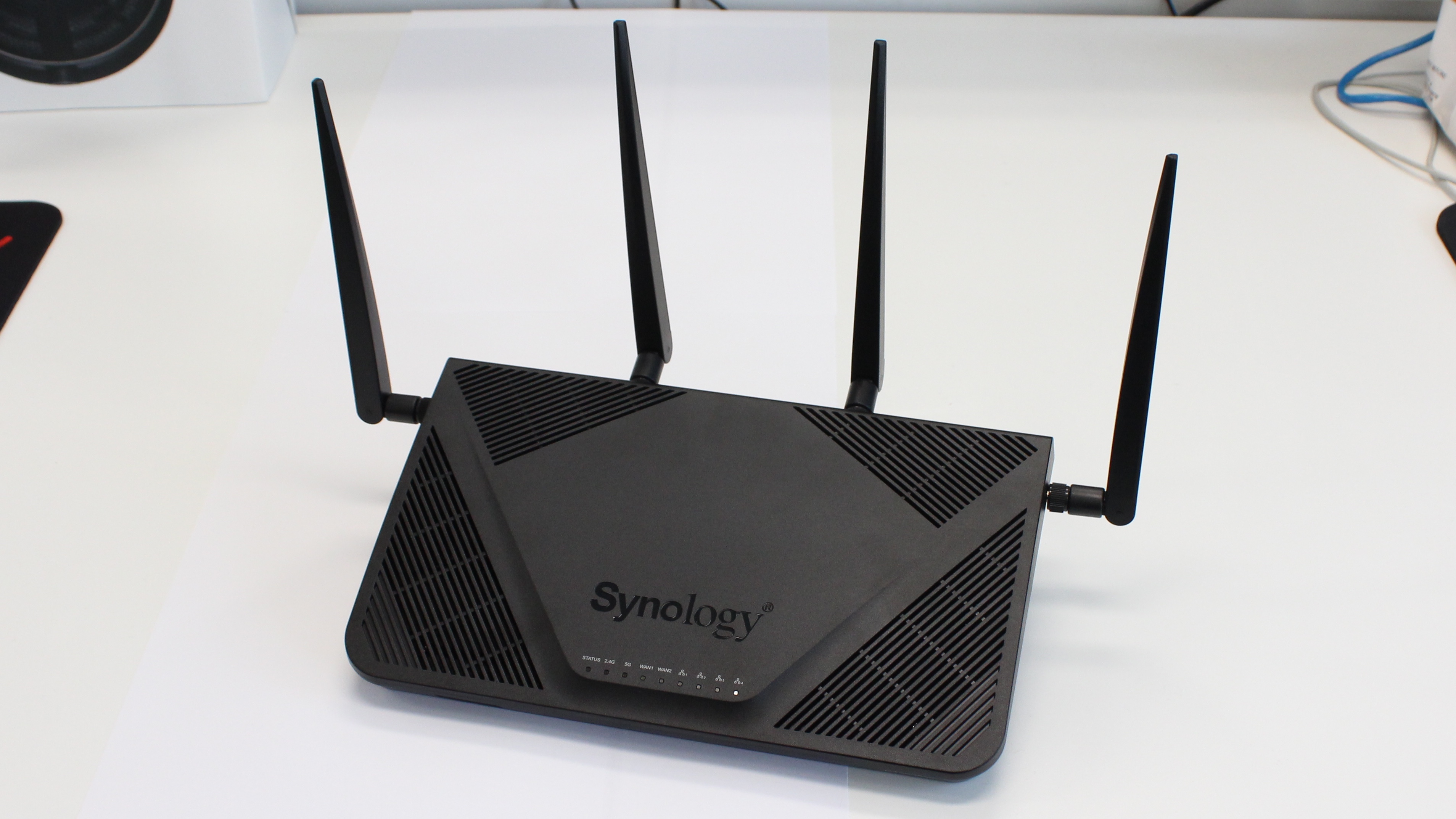
Specifications
Reasons to buy
Reasons to avoid
The Synology RT2600ac is what you get when you fuse a traditional wireless router with a network-attached storage device or NAS (well, it gives you a bit more). The company is known chiefly for its NAS boxes. While the modem doesn’t boast the beefiest specs or even a conventionally attractive shell like most of the competition, the RT2600ac packs many features (like built-in VPN and the ability to aggregate two WAN ports) that make it worthwhile.
While it only has 4GB of storage, you can connect an external hard drive and configure your cloud service similar to Google Drive or Microsoft OneDrive. You can even download several NAS-grade apps like a VPN client and server. Unfortunately, the app selection is currently sparse, and the ecosystem needs better community support – hopefully, it’ll get going forward.
Though its setup process and more complex functions are not precisely foolproof, the Synology RT2600ac is much more accessible than most NAS devices. Remember that this is only Synology’s second attempt at devising a router of its own, so despite some shortcomings here, there’s plenty of room to improve.
Read the full review: Synology RT2600ac.
- We’ve also picked out the best Wi-Fi extenders
Best small business router FAQs
Best Small Business Routers: How to choose
When choosing the best small business routers, start with assessing the size of your office. If you have a large office space, it'll help to have a wide-range router.
Check the number of internet-connected devices you have. If you have smart lights, TVs, speakers, or other appliances that need internet access to function, you'll want to consider those too.
If your office space is large and has multiple floors, you'll enjoy better connectivity with a mesh router.
Make sure to check how many communication bands the router has. If it's a single band-router, your internet traffic may get congested with too many devices on the network. But if you have a dual-band router that provides 2.4GHz and 5.0GHz bands, then you could separate the internet traffic and enjoy better speeds.
Importantly, you'll want to check what speeds the router offers, how easy the setup process is, and whether there's a useful companion app with the router.
How we tested the best small business routers
To test the best small business routers, we compared them across plenty of points, like their speeds, coverage area, communication bands, and router type.
We looked at the size of offices the routers would be best suited for and the range of devices they could comfortably handle. We included both mesh and traditional routers options that'd be suitable for different kinds of spaces.
We evaluated their companion apps and consoles to see how easy their setup was, how simple they used it, and whether they offered advanced tweaking options for pro users.
We also considered the communication bands the routers offered, the Wi-Fi standard, connectivity options, and the pricing, among other things.
Get in touch
- Want to find out about commercial or marketing opportunities? Click here
- Out of date info, errors, complaints or broken links? Give us a nudge
- Got a suggestion for a product or service provider? Message us directly
- You've reached the end of the page. Jump back up to the top ^
Are you a pro? Subscribe to our newsletter
Sign up to the TechRadar Pro newsletter to get all the top news, opinion, features and guidance your business needs to succeed!
Former TechRadar Pro B2B Hardware Editor, Collin has been in journalism for years, with experience in small and large markets, including Gearadical, DailyBeast, FutureNet, and more.
- Bryce HylandContributor
- Desire AthowManaging Editor, TechRadar Pro
- John LoefflerComponents Editor
